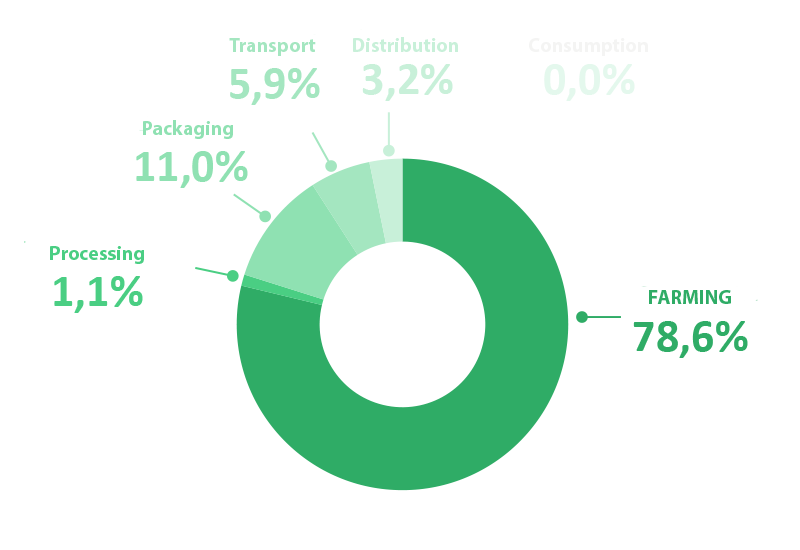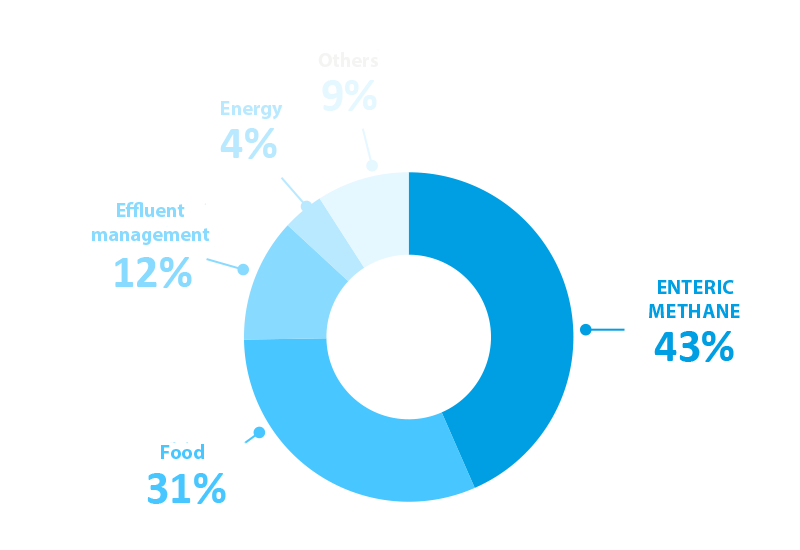

Dairies are major players in the milk sector which can trigger actions to reduce greenhouse gases. This is why we want to support them in their policies by providing them with the tools and advice to achieve their objectives.
Our proposal revolves around 3 themes: measuring, improving and promoting.
Measuring methane emissions on dairy farms easily and regularly using our patented equation based on milk production and analyses of the fatty acids in the milk.
Improving by offering natural solutions linked to dairy cow feed to reduce methane emissions, while taking into account the technical and economic effects on farms.
Promoting products that contribute to improving the carbon footprint as well as the means used to achieve this.
A simple method to implement. We use existing data or data from a network of referenced laboratories.
A reliable method co-designed with INRAE, French Public Research Institute, working for coherent, sustainable development of agriculture, food and the environment.
A method that has been recognised several times by the French government and in the context of the UNFCCC (United Nations Framework Convention on Climate Change).
A solid method with the advantage of more than 10 years’ experience.
A fast method. The impact of practices on methane emissions is measured in real time.
A sustainable method. Taking into account the technical and economic consequences for the dairy and farmers is essential in obtaining a long-lasting reduction in methane emissions over time.
A customised method. Support is adapted to your needs and objectives.
A transparent, obligation-free method. No greenwashing, no obligation to purchase another service or another product.